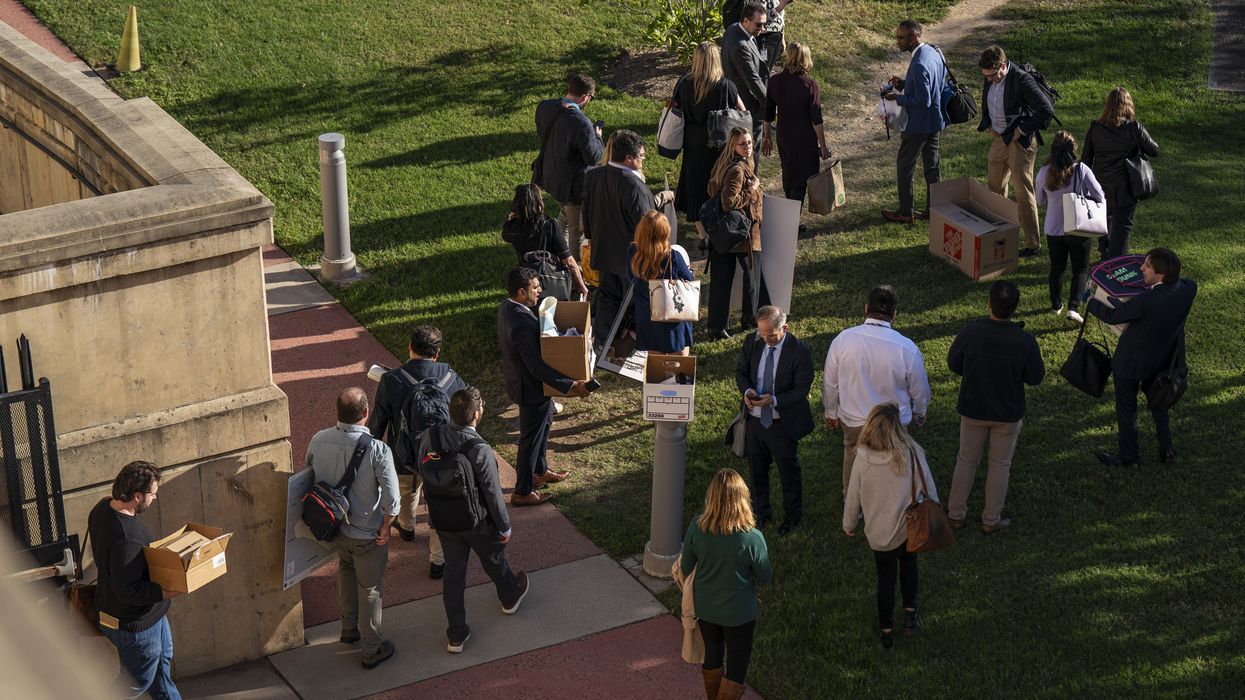March, 02 2022, 10:27am EDT

New Analysis on Severe Nuclear Hazards at Zaporizhzhia Plant in Ukraine--Only Solution Is Immediate End to War
Vladimir Putin's military invasion of Ukraine poses an unprecedented nuclear threat, with the country's 15 commercial nuclear reactors, including the largest nuclear plant in Europe, at risk of potentially catastrophic damage that could render vast areas of the European continent, including Russia, uninhabitable for decades, new analysis shows.[1]
WASHINGTON
Vladimir Putin's military invasion of Ukraine poses an unprecedented nuclear threat, with the country's 15 commercial nuclear reactors, including the largest nuclear plant in Europe, at risk of potentially catastrophic damage that could render vast areas of the European continent, including Russia, uninhabitable for decades, new analysis shows.[1]
At the Zaporizhzhia plant, which produced 19% of Ukraine's electricity in 2020 and where Russian troops and military hardware are within kilometres,[2] there are six large reactors and six cooling pools with hundreds of tons of highly radioactive nuclear fuel. Three reactors are currently operating and three have been shut down since the start of the war.
The assembled research by specialists for Greenpeace International concludes that the safety of Zaporizhzhia is severely compromised by the war. In a worst-case scenario, where explosions destroy the reactor containment and cooling systems, the potential release of radioactivity from both the reactor core and the spent fuel pool into the atmosphere could create a disaster far worse even than the Fukushima Daiichi catastrophe of 2011, with areas of land hundreds of kilometres from the reactor site potentially becoming inhospitable for decades. Even without direct damage to the plant, the reactor's rely heavily on the electric grid for operating cooling systems, on the availability of nuclear technicians and personnel and access to heavy equipment and logistics.
Jan Vande Putte, co-author of the risk analysis,[3] said:
"To add to the horrific events of the last week there is a unique nuclear threat. For the first time in history a major war is being waged in a country with multiple nuclear reactors and thousands of tons of highly radioactive spent fuel. The war in southern Ukraine around Zaporizhzhia puts them all at heightened risk of a severe accident. So long as this war continues the military threat to Ukraines nuclear plants will remain. This is one further reason, amongst so many, why Putin needs to immediately cease his war on Ukraine."
Since the start of the war in Ukraine, Greenpeace International has been closely monitoring the implications for the nuclear installations throughout the country. Today, Greenpeace International has published a technical analysis on some of the major risks at the Zaporizhzhia nuclear power plant in southern Ukraine.
In the case of an accidental bombing and certainly in case of a deliberate attack, the consequences could be catastrophic, well beyond the impact of the Fukushima nuclear disaster in 2011. Because of the vulnerability of the nuclear power plants, its dependency on a complex set of support systems, and the long period of time it takes to bring the power plant into a more passive safety level, the only way to substantially reduce the risks is to halt the war.
Greenpeace wishes to express its deep respect and appreciation to all the workers at the nuclear power plant sites in the Ukraine, including Chornobyl, who are working under extreme conditions to maintain the stability of nuclear power plants.[4] They are not only protecting the safety of their own country but also of a large part of Europe.
The International Atomic Energy Agency (IAEA) Board of Governors held an emergency session Wednesday 2 March to discuss the Ukraine nuclear crisis.[5]
Greenpeace is a global, independent campaigning organization that uses peaceful protest and creative communication to expose global environmental problems and promote solutions that are essential to a green and peaceful future.
+31 20 718 2000LATEST NEWS
'Intellexa Leaks' Reveal Wider Reach of Predator Spyware
“This investigation provides one of the clearest and most damning views yet into Intellexa’s internal operations and technology," said Amnesty International Security Lab technologist Jurre van Bergen.
Dec 04, 2025
Highly invasive spyware from consortium led by a former senior Israeli intelligence official and sanctioned by the US government is still being used to target people in multiple countries, a joint investigation published Thursday revealed.
Inside Story in Greece, Haaretz in Israel, Swiss-based WAV Research Collective, and Amnesty International collaborated on the investigation into Intellexa Consortium, maker of Predator commercial spyware. The "Intellexa Leaks" show that clients in Pakistan—and likely also in other countries—are using Predator to spy on people, including a featured Pakistani human rights lawyer.
“This investigation provides one of the clearest and most damning views yet into Intellexa’s internal operations and technology," said Amnesty International Security Lab technologist Jurre van Bergen.
🚨Intellexa Leaks:"Among the most startling findings is evidence that—at the time of the leaked training videos—Intellexa retained the capability to remotely access Predator customer systems, even those physically located on the premises of its govt customers."securitylab.amnesty.org/latest/2025/...
[image or embed]
— Vas Panagiotopoulos (@vaspanagiotopoulos.com) December 3, 2025 at 9:07 PM
Predator works by sending malicious links to a targeted phone or other hardware. When the victim clicks the link, the spyware infects and provide access to the targeted device, including its encrypted instant messages on applications such as Signal and WhatsApp, as well as stored passwords, emails, contact lists, call logs, microphones, audio recordings, and more. The spyware then uploads gleaned data to a Predator back-end server.
The new investigation also revealed that in addition to the aforementioned "one-click" attacks, Intellexa has developed "zero-click" capabilities in which devices are infected via malicious advertising.
In March 2024, the US Treasury Department sanctioned two people and five entities associated with Intellexa for their alleged role "in developing, operating, and distributing commercial spyware technology used to target Americans, including US government officials, journalists, and policy experts."
"The proliferation of commercial spyware poses distinct and growing security risks to the United States and has been misused by foreign actors to enable human rights abuses and the targeting of dissidents around the world for repression and reprisal," the department said at the time.
Those sanctioned include Intellexa, its founder Tal Jonathan Dilian—a former chief commander of the Israel Defense Forces' top-secret Technological Unit—his wife and business partner Sara Aleksandra Fayssal Hamou; and three companies within the Intellexa Consortium based in North Macedonia, Hungary, and Ireland.
In September 2024, Treasury sanctioned five more people and one more entity associated with the Intellexa Consortium, including Felix Bitzios, owner of an Intellexa consortium company accused of selling Predator to an unnamed foreign government, for alleged activities likely posing "a significant threat to the national security, foreign policy, or economic health or financial stability of the United States."
The Intellexa Leaks reveal that new consortium employees were trained using a video demonstrating Predator capabilities on live clients. raising serious questions regarding clients' understanding of or consent to such access.
"The fact that, at least in some cases, Intellexa appears to have retained the capability to remotely access Predator customer logs—allowing company staff to see details of surveillance operations and targeted individuals raises questions about its own human rights due diligence processes," said van Bergen.
"If a mercenary spyware company is found to be directly involved in the operation of its product, then by human rights standards, it could potentially leave them open to claims of liability in cases of misuse and if any human rights abuses are caused by the use of spyware," he added.
Dilian, Hamou, Bitzios, and Giannis Lavranos—whose company Krikel purchased Predator spyware—are currently on trial in Greece for allegedly violating the privacy of Greek journalist Thanasis Koukakis and Artemis Seaford, a Greek-American woman who worked for tech giant Meta. Dilian denies any wrongdoing or involvement in the case.
Earlier this week, former Intellexa pre-sale engineer Panagiotis Koutsios testified about traveling to countries including Colombia, Kazakhstan, Kenya, Mexico, Mongolia, the United Kingdom, and Uzbekistan, where he pitched Predator to public, intelligence, and state security agencies.
The new joint investigation follows Amnesty International's "Predator Files," a 2023 report detailing "how a suite of highly invasive surveillance technologies supplied by the Intellexa alliance is being sold and transferred around the world with impunity."
The Predator case has drawn comparisons with Pegasus, the zero-click spyware made by the Israeli firm NSO Group that has been used by governments, spy agencies, and others to invade the privacy of targeted world leaders, political opponents, dissidents, journalists, and others.
Keep ReadingShow Less
In Trump Economy, Holiday Spending Plans Plummet and Layoffs Hit Highest Level Since Covid Pandemic
The grim data arrive as President Donald Trump is reportedly planning to "aggressively push back" on negative perceptions about his economy.
Dec 04, 2025
A new batch of data is offering more evidence that the US economy is in rough shape heading into the holidays.
The latest Economic Confidence Index released by Gallup on Thursday has found that Americans' confidence in the economy has fallen by seven points over the last month, and now stands at its lowest level in more than a year.
Overall, Gallup found that just 21% of Americans currently describe the economy as excellent or good, while 40% describe it as poor. The outlook for the near future also looks grim, as more than two-thirds of Americans surveyed said the economy is currently getting worse.
This deteriorating economic confidence is weighing on Americans' holiday shopping plans, as Gallup found that planned holiday spending expenditures have "plummeted" from just over $1,000 in October to $778 in November. The decline in spending expectations also occurred across all income groups, although it was particularly steep among low-income households, which slashed their estimated holiday spending by an average of $267.
Gallup noted that while it's common for shoppers to trim their spending plans the closer it gets to the holidays, the drop between October and November this year was the biggest it has ever recorded, even "surpassing the $185 drop seen during the 2008 global financial crisis."
The Gallup survey was not the only troubling economic data to drop on Thursday, as outplacement firm Challenger, Gray, and Christmas released its latest report showing that hiring in the US has slowed to its lowest level in the last 15 years, while layoffs now total their highest level since 2020, when the country was at the peak of the Covid-19 global pandemic.
The data on layoffs came just one day after global payroll processing firm ADP estimated that the US economy lost 32,000 jobs in November, with small businesses shouldering by far the most job losses.
President Donald Trump, who earlier this week dismissed concerns Americans might have about affordability as a "Democrat scam," has reportedly decided to hit the road in an effort to convince voters that they've never had it so good.
According to Axios, Trump next week will start touring the country to tout his administration's economic policies, and he is expected to "aggressively push back against criticism over the cost of everyday essentials—an issue that helped propel him to victory over Kamala Harris last year."
However, a new poll published by Politico on Thursday shows that Trump may have an uphill climb selling his economy even to his own voters.
Overall, the poll found that 37% of voters who backed Trump last year now say that the cost of living crisis is the worst they have experienced in their lifetimes, while only 24% of 2024 Trump voters say that the cost of living crisis at the moment is "not bad."
The poll also found that Trump's efforts to blame former President Joe Biden for the current state of the economy aren't flying, as 46% of voters say that Trump is most to blame for the current state of the economy, compared to 29% of voters who put the primary blame on Biden.
Keep ReadingShow Less
After NYT Sues Over Pentagon Policy, Press Advocates 'Urge Other News Outlets to Follow'
"The only way to put an end to the Trump administration's multipronged assault on press freedom is for every news outlet to fight back at every opportunity," said the head of the Freedom of the Press Foundation.
Dec 04, 2025
Press freedom advocates on Thursday welcomed the New York Times' lawsuit over the US Department of Defense's "flatly unconstitutional" press policy, filed on the heels of the first briefing for what critics call the "Pentagon Propaganda Corps."
The newspaper and Times reporter Julian E. Barnes, one of several journalists who refused to sign the policy earlier this year, are suing the DOD—which President Donald Trump has dubbed the Department of War—as well as Defense Secretary Pete Hegseth and the Pentagon's chief spokesperson, Sean Parnell, in the US District Court in Washington, D.C.
The plaintiffs are asking Judge Paul L. Friedman, an appointee of former President Bill Clinton, to strike down provisions of the Pentagon policy that violate their First and Fifth Amendment rights, and warn that "if allowed to stand, that policy will upend the longstanding and 'healthy adversarial tension between the government, which may seek to keep its secrets' and 'the press, which may endeavor to' report them... and will deprive the public of vital information about the United States military and its leadership."
The filing notably comes not only as the DOD celebrates that dozens of "independent journalists, bloggers, and social media influencers" who "are not associated with legacy media outlets, including print media such as newspapers and magazines, and broadcast media, such as cable television news," have joined the new Pentagon Press Corps in exchange for signing the controversial agreement, but also as Trump and Hegseth face mounting outrage over boat bombings that experts argue are "war crimes, murder, or both."
Charlie Stadtlander, a spokesperson for the newspaper, said in a statement that "the Times stands with fellow news organizations across digital, print, and broadcast media, including many conservative outlets, in strongly opposing this unprecedented policy."
The paper has hired a prominent First Amendment lawyer, Theodore J. Boutrous Jr. of Gibson Dunn. The Washington Post reported that "lawyers representing the Times said they discussed litigation with other news organizations but ultimately decided to proceed on their own. They said they would welcome other outlets filing their own lawsuits or amicus briefs in the Times' case."
While Parnell said in a statement that "we are aware of the New York Times lawsuit and look forward to addressing these arguments in court," journalists and media advocacy groups are already signaling support for the newspaper—which is also battling a $15 billion defamation suit refiled by the president in October.
Reporters Committee for Freedom of the Press vice president of policy Gabe Rottman said Thursday that "the Pentagon's press access policy is unlawful because it gives government officials unchecked power over who gets a credential and who doesn't, something the First Amendment prohibits."
"The public needs independent journalism and the reporters who deliver it back in the Pentagon at a time of heightened scrutiny of the department's actions," he asserted. "We look forward to lending our voice in support of this suit."
The Pentagon Press Association said it was "encouraged by the New York Times' effort to step up and defend press freedom," while White House Correspondents' Association president Weijia Jiang declared that the WHCA "stands firmly" with the newspaper and described the suit as "a necessary and vital step to ensure journalists can do their jobs."
Clayton Weimers, executive director for Reporters Without Borders USA, said that "it's great to see the New York Times continue to proactively defend press freedom in the courts as well as on their pages. We all know by now that capitulation to Donald Trump's authoritarian impulses never works out, but fighting back will."
"This is the logical next step after the mass refusal of journalists to sign Secretary of Defense Hegseth's loyalty pledge," Weimers added. "Journalists must be able to cover the government critically and freely."
Pointing to television companies' recent settlements with the president, Freedom of the Press Foundation executive director Trevor Timm said that "in an era where news networks seem to be caving to Trump's censorious tactics left and right, it's refreshing to see the New York Times leading by example and sticking up for the First Amendment in court."
"An attack on any journalist’s rights is an attack on all. And the only way to put an end to the Trump administration's multipronged assault on press freedom is for every news outlet to fight back at every opportunity," Timm continued. "We urge other news outlets to follow the Times' lead."
"These days, the government has countless platforms of its own to tell the public what it wants it to know. A free and independent press isn't needed for that," he noted. "The Constitution guarantees one anyway precisely because the public needs the information the government does not want it to know. The Pentagon's absurd access pledge has been an affront to the First Amendment since the first day they proposed it. And we look forward to a federal judge throwing it out with the trash, where it belongs."
Keep ReadingShow Less
Most Popular


